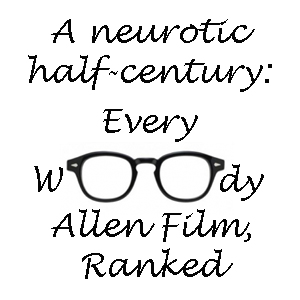“Barbie” wouldn’t be a good idea for a product tie-in movie, except that it’s about how it’s not a good idea for a product tie-in movie, and that turns out to be a great launching point. Mattel lets director/co-writer Greta Gerwig poke fun at the 64-year-old girls’ fashion doll line. The first and funniest gag is that there are no storylines or character arcs built into “Barbie” – Margot Robbie’s perfectly content character relaxingly exists in flawless Barbie Land.
Further tapping into absurdities of “Barbie” lore, Gerwig and co-writer Noah Baumbach acknowledge a handful of other characters besides Barbie and Ken (Ryan Gosling). Among them are Midge (characterized by being pregnant), Allan (all of Ken’s clothes fit him) and Skipper (she actually escaped into the Real World a decade before Barbie’s journey in this film, but no one cared).
The movie leans into the fact that many different-looking dolls through the years are all named Barbie and Ken, probably because that helped sales. As such, Robbie’s Barbie becomes Stereotypical Barbie and Gosling’s Ken is Beach Ken, but other Barbies and Kens are played by a dozen different actresses and actors.
“Barbie” (2023)
Director: Greta Gerwig
Writers: Greta Gerwig, Noah Baumbach
Stars: Margot Robbie, Ryan Gosling, America Ferrera
So we have a film that makes fun of “Barbie” while also being a commercial for Barbies. With that foundation in place, Gerwig digs slightly more than skin-deep into the conundrum of fantasy versus reality. Everyone’s happy on the Hollywood side of things.
Life in plastic, it’s fantastic
On the audience side of things, people will be mildly satisfied, but this isn’t as risqué and uproarious as it could’ve been. It’s not for 5-year-olds but it has good messages for tweens and up – anyone who needs to be reminded that the world is a tough place and it’s OK to be the best version of yourself. Even if that means you’re Allan instead of Ken or a Barbie who doesn’t become president.
The film’s plastic perfection (there’s no arguing with the set design, based on the doll houses, cars, etc.) initially works in its favor, as Robbie, Gosling, Michael Cera (as Allan) and Kate McKinnon (as Weird Barbie) are humorously spot-on casting choices. Barbie Land is the visual equivalent of candy. But as we get deep into the film’s second hour, a stomach-ache might set in.
Thematically, “Barbie” tries several different things. Barbie undergoes self-doubt about being pretty, and narrator Helen Mirren – in one of the most “hang a lampshade” moments ever – says “Note to the filmmakers: Margot Robbie is the wrong person to cast if you want to make this point.”
A Real World mom and daughter (America Ferrera’s Gloria and Ariana Greenblatt’s Sasha), who are both inspired by and bothered by Barbie dolls, provide a through-line for a while.

Despite throwing ideas at the wall, “Barbie” misses some opportunities. Dua Lipa plays Mermaid Barbie, and the film borders on being a musical – the Kens have an interminable late-film number – yet the singer doesn’t get to sing. Whenever Robbie is given a fish-out-of-water gag (“I’m feeling conscious … about … self”), she nails it, but the film doesn’t go full-bore into its comedic possibilities.
It juggles several themes and styles
Its most-explored theme is gender roles; Barbie Land is taken over by the Kens after Beach Ken learns some tricks from the Real World. This subplot is summed up in a great line from Sasha, explaining the Real World to Barbie: “Men hate women and women hate women. It’s the one thing we can all agree on.”
But later the ghost of Barbie’s creator, Ruth Handler (Rhea Perlman), acknowledges that some things – like The Patriarchy and Barbie herself — are flexible concepts to help us deal with how hard life is. They aren’t clearly defined, with constant truisms. As one Real World nebbish says, “I’m a man with no power – does that make me a woman?”
Spending too long thinking about social differences between men and women will turn into banging one’s head against the wall, because there are just too many exceptions. If there are blatant oddities – like the entire corporate board at Mattel being men (as in the movie) – that doesn’t mean the solution comes with the snap of fingers. It’s also important to research whether something truly is a problem: The actual Mattel board includes six men and five women.
Before it circles into its own gravity well, “Barbie” – which starts with an amusing “2001” parody – riffs on “The Matrix” and “Harry Potter” and other movies with a White Room motif. It’s satisfying enough (or “Kenough”).
But when Barbie happily visits her Real World gynecologist before a smash-cut to the credits, it’s one last reminder that the film – despite including Will Ferrell – does not go to “Elf” levels of culture-clash humor. It’s a nice, cute movie with valid points. But despite giving the impression that Mattel is all in on making fun of its treasured product, “Barbie” is ultimately too timid to be gut-busting.

